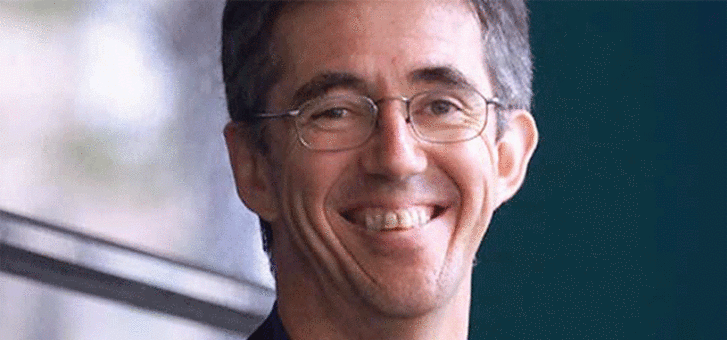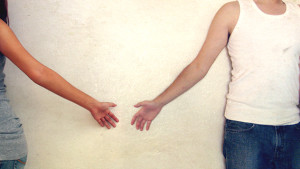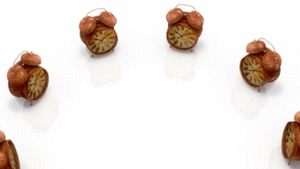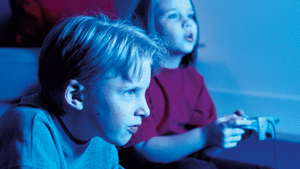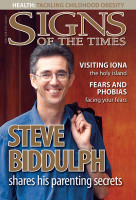Working as a family therapist in Launceston, Tasmania, it was the book he would have given out but couldn't find. Steve Biddulph says interacting with hundreds of ìstruggling but inspiringî parents prompted him to write The Secret of Happy Children, which has been translated into 27 languages.
"What got me started was this tragedy I saw happening in Anglo-Saxon parenting, going right back to the UK origins of most Australians back then," he says. "We loved our children but didnít tell or show them, whereas other races and nations were warm, demonstrative and loving. The Secret of Happy Children was about putting your love into words and action, so your children come to believe in themselves.
"Of course," he adds, "it also helps if kids actually do good things for others, and learn to be considerate, honest and kind. That's why the second part of the book More Secrets was added eight years later."
And after more than 30 years working with families, his inspiration still comes from the people he connects with. "I think parents are the most loving and inspiring people in the world," Steve explains, "especially new parents, full of hopes and ideals, with so much love for each other and their child. A birth opens our hearts but it ís sometimes hard to live out the ideals we feel in those first months. Young parents are also the most vulnerable to economic pressure, stress, loneliness and isolation, because we are not really meant to live in nuclear families, with so little support in babysitting and providing for our families.
"I wanted to make books that were like a good friendóthat made you laugh, feel normal and reassured but with a few clues just slipped in from time to time on how to make it easier.
"But I still urge all parents to belong to something: a church, a group of friends, a network like the Australian Breastfeeding Associationó even if you canít breastfeed for some reasonóor playgroups. This way, you get a lifesaving friendship and encouragement. The secret of family life is friendship networks around the family, so it is not quite so turned in on itself. Books aren't able to do that!"
For an author, Steve is candid about the shortcomings of books. "Books never changed anybody deep down," he admits. "But what they do is remind you of your own heart. A story, such as the cold mother who learned to love her son after he almost committed suicide, or—in Manhood—the story of the father who tracked down and forgave his own father after years of hostility, often brings readers to tears."
When Steve talks on parenting, he uses the same dynamic in his presentations, bringing his listeners laughter as well as tears. "I learned early on that laughing is how we survive impossible times," Steve explains. "It releases hormones that help us pick ourselves up and above all, it restores perspective."
Of course, Steve draws on his own experiences, both as a son and a parent. "My mum and dad were very loving, which was unusual in the Yorkshire I grew up in," he says. "We migrated to Australia in the early 1960s and that was a tough time. We went straight into our teens in a strange country and teens are a time when a family needs lots of social supports, other adults around.
"And real parenthood always keeps you humble," he adds. "Two emergency caesareans and a miscarriage certainly taught us early in our family life to roll with the punches—things donít always go to plan."
Steve is passionate when he talks about parenting. "The overall feeling I want to pass on to young parents also came from my own feelings as a father, of being so blessed just to have children alive and growing," he says. "They are around for such a short time, so be sure to laugh, love, dance, enjoy their childhoods and be grateful for the privilege."
But perhaps Steve's greatest writing contribution has been his focus on parenting boys and exploring manhood. "Manhood was the most satisfying book to write, because I was struggling with those questions myself," he says. "And when people stop me in airports or hotel lobbies or even just in the street, itís to say thank you for Manhood. Often it's women whose husbands have been changed. You can see in people's eyes that itís very heartfelt. I feel blessed to have had that kind of effect."
Raising Boys was the first parenting book to be a number one bestseller in Australia and has sold millions of copies around the world. "My main message for 10 years has been that boys are different—and men are different—and we have a special role to play," he explains. "Raising Boys was a revolution, because while the experts were worrying about girls—and in fact we did a great job of helping girls raise their horizons in recent decades—boys were dying at three times the rate of girls and were failing at school and in life.
"We are just now reaching a place where we understand both genders well. In fact, I am starting to write more about girls, as they are under assault from advertisers to look thin, be sexual when they are still in primary school and hate their own looks. The corporate and advertising world is killing young girls, and we need laws to stop this."
Steveís earnestness reveals an active social conscience that has also seen him get involved in a variety of other causes, often connected with their impact on families and children. "About six years ago, I realised our country was being led in a very bad direction," he reflects. "Australians, who are normally generous and hospitable, were becoming afraid and greedy. Fear and greed combined are a terrible thing, because they lead to closing down your heart.
"I was getting reports from other psychologists about the inhumane conditions in refugee detention centres—lights on all night, people being woken each night for head counts, two toilets for 400 people in the Woomera Detention Centre, things like that. And these were families—young parents with babies and young children."
But a lesser known tragedy particularly caught Steve's attention. "Then I learned about the SIEV X tragedy in 2001," he says, "when a boat loaded with mothers and children sank with no attempt to rescue it, even though it was reportedly known to have set sail in terrible condition. More than 300 mothers and children drowned, while we flew overhead on the way to Asian holidays or swam at the beach.
"A group of us—mostly Christians—decided to build a national memorial to SIEV X, to tell the story because most people had never heard of SIEV X. We eventually found 353 communities, churches and school groups, who made memorial poles to honour every parent and child who died."
The SIEV X memorial was opened in Canberraís Weston Park on September 2 this year. According to Steve—a co-founder of the project—the memorial is a powerful statement that says "love is stronger than fear and our country, especially our young people, do care about the stranger, the helpless and vulnerable in the world."
So have Steve's books, speaking and other activities made a difference in our society? He tallies his achievements matter-of-factlyóand with some understatement.
"I think about a million boys now get taught to cook because we make a big thing of that in the book," he says. "I think tens of thousands of men have reconciled with their own fathers after being prompted by reading Manhood. I think mums are more confident with boys. And thousands of teachers have learned that noisy and active does not mean boys are being bad.
"I have learned that love is the only thing that matters in the world."

